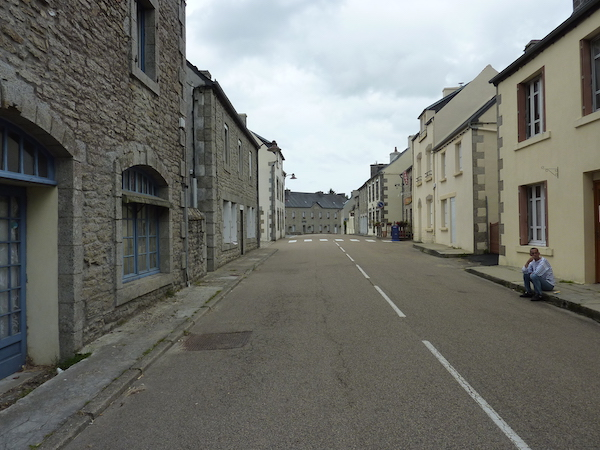The initiative 1000 coffees aims to recreate meeting places and local services in rural communities that no longer have them.
The SOS group has just launched a call for applications open to the mayors of municipalities with less than 3,500 inhabitants, to identify locations for the creation of multi-service cafés.
The cafés will offer complementary activities and services, adapted to the needs expressed by the inhabitants.
Among the local services envisaged in the call for applications are (in addition to a bread depot, a point of sale of fresh local products, a post office, a tourist information point) a digital access point, but also a shared work space.
- To be accepted, the application must be submitted by the Mayor of the municipality.
- Municipalities of less than 3500 inhabitants whose cafés are threatened with closure or who no longer have a café but have premises suitable for this activity will be eligible.
- The call for applications is open on a continuous basis, and a first instruction period will take place in October for the pre-selection of communes.
The digital component of the Rural Agenda
To reinforce the revitalization of the countryside and support local initiatives, the Government has set up an action plan for rural areas. This "Rural Agenda" was presented by the Prime Minister at the Congress of the Association of Rural Mayors of France on September 20.Among the 173 measures, a number aim to ensure access to digital services, rely on digital technology to provide solutions or are part of a digital inclusion approach.
Ensuring digital access in these territories- To eliminate white areas of mobile telephony in five years and deploy 4G on all existing towers by 2020.
- In the context of the next frequency allocations for 5G, impose a minimum quota of 5G sites to be deployed in rural territories.
- To make attractive the solutions of THD satellite by providing a 150 € aid per installation and by launching a new generation of satellite in 2021.
- To support 150 third places in rural areas, within the framework of the program " New places, new links". Third places are shared spaces that bring together a range of services such as coworking, fab-lab, ressourcerie...This program will provide financial support to these projects to secure economic models and network project leaders.
- Deploy 1,000 cafés to help economic activity and the presence of places of life in the villages.
- Deploy 33 connected campuses in rural areas, to enable young graduates living in rural areas to pursue their higher education studies at a distance, while benefiting from enhanced support. Consideration will be given to adapting this system to apprentices.
- To create, by the end of the five-year period, at least one France Services center per canton to allow all inhabitants to have a base of public services close to home. At least 300 France Services centers will be deployed by the beginning of 2020, most of them in rural areas. The creation of this new network will be made possible by increased financial support from the State, the reinforcement of training for reception staff and a greater range of services offered in these structures.
- Develop first-level reception in town halls, through close coordination between the network of France Services centers and the network of town halls attached to them, and the training of town hall secretaries.
- Experiment with the " AidantsConnect "in rural areas to protect users and the "helpers" who accompany them in carrying out administrative procedures online.
- Deploy "La Boussole des jeunes" in rural areas. La Boussole des jeunes is a platform that gives young people easier access to the services offered to them at the national level (e.g. the €1 driving license) but also at the local level through the schemes deployed by local authorities for young people (e.g. discount cards for transport, offers of cultural and sports subscriptions, job-seeking schemes...). This system makes it easier for young people to access all the services offered to them in their daily lives by grouping these services in a single, dedicated digital space, services of which they are not always aware.
- Deploy " Pix "the public service for the certification of digital skills, during the SNU and set up the appropriate training at the end
- Deploy 15,000 civic services in rural areas, particularly with the elderly and in local communities.
- Offer a bouquet of turnkey digital applications for local authorities and residents of rural areas. A state-owned start-up called "Territoires Store" will be launched in rural areas to enable elected officials to offer local services via an application: booking places in day care centers, canteen menus, etc.
- Create a collaborative information platform on digital projects in the territories. A State start-up will be launched to identify available solutions and best practices for local authorities, to draw up a directory of assistance, and to provide a resource and documentation center for local elected officials to help them develop their own projects.
- Launch a consultation with public actors to propose training and awareness programs for digital and innovation.
- Deploy at least 200 Micro-Folies in rural areas, out of the 1,000 deployed nationwide. The micro-folies, deployed in voluntary territories, are innovative cultural third places composed of a digital museum and cultural events in voluntary territories.
- Encourage last mile mobility solutions through reciprocity contracts and the development of intermodality.
- Promote mobility platforms in rural areas. In the framework of the "solidarity mobility" competence opened up by the draft law on the orientation of mobility, the mobility organizing authorities (AOM) will be able to organize special services dedicated to people in situations of social or economic vulnerability, to people with reduced mobility or disabilities.
Références :





